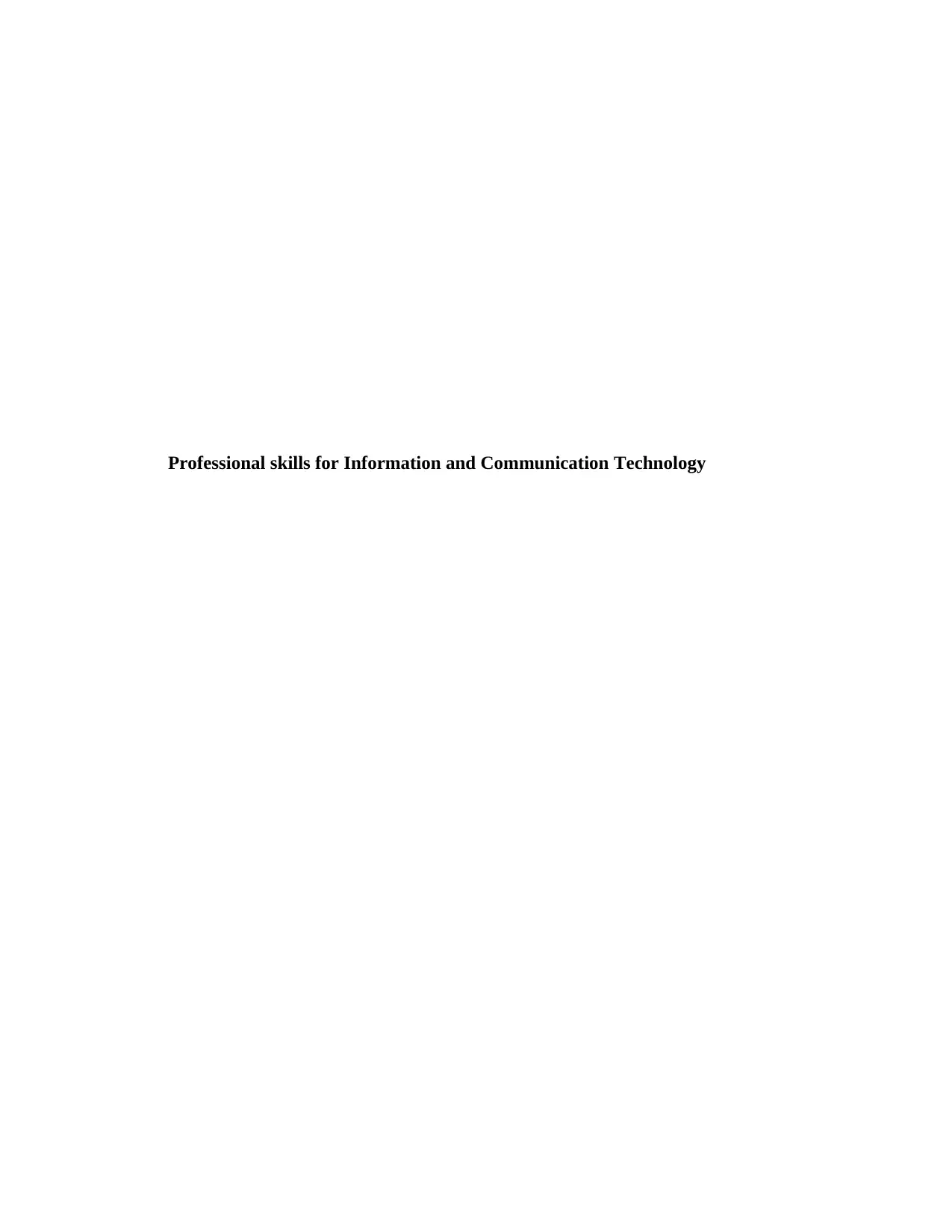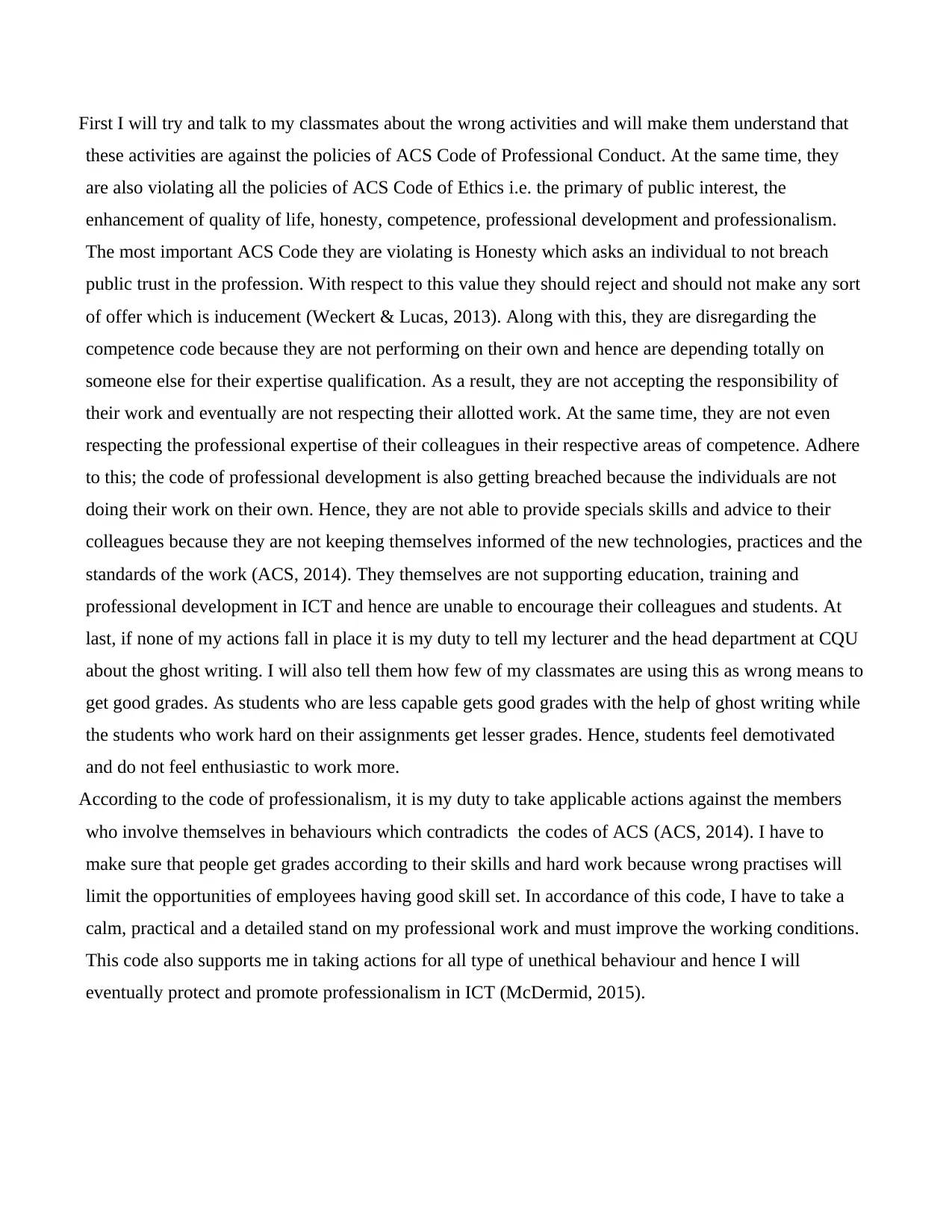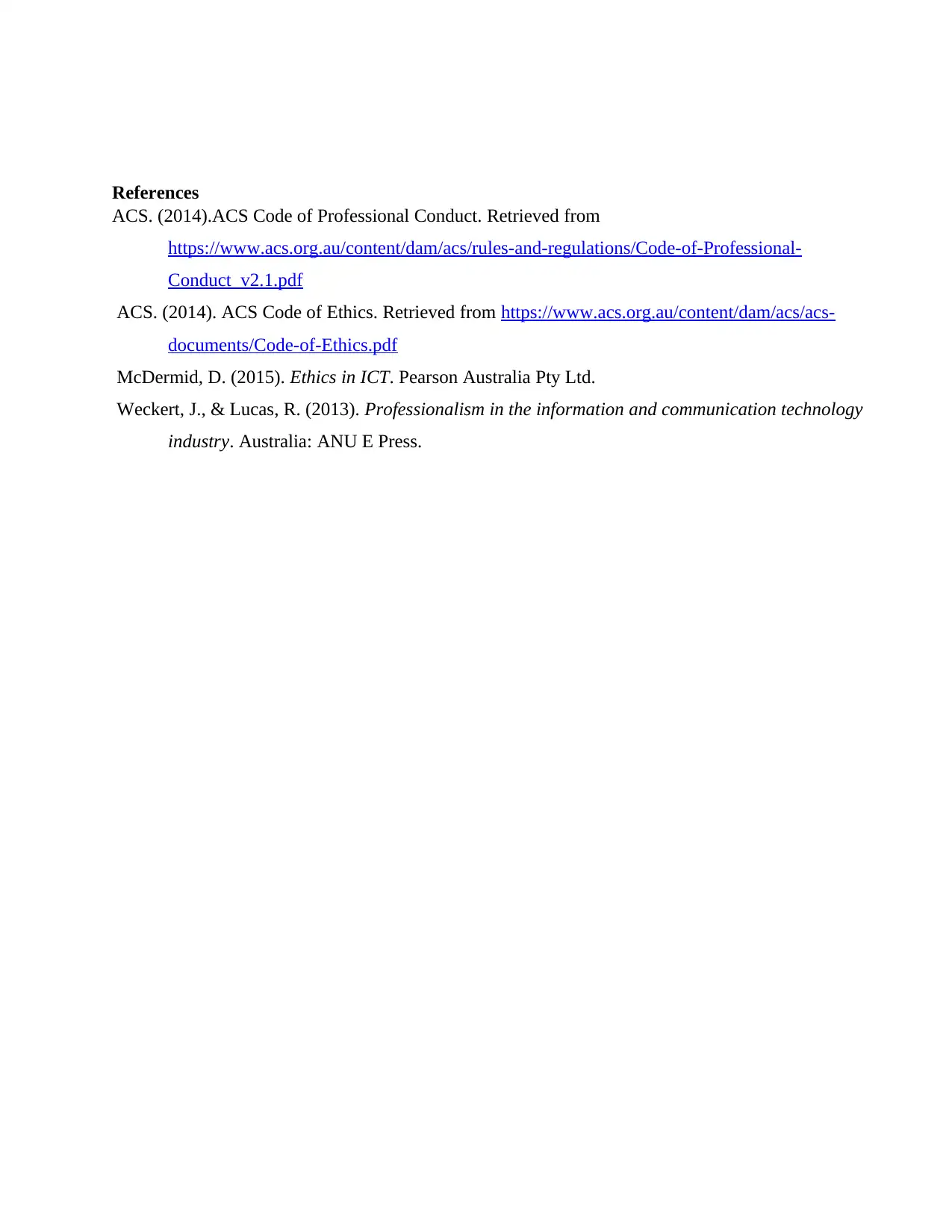ICT Professionalism: Strategies for Addressing ACS Code Violations
VerifiedAdded on 2023/06/11
|3
|588
|140
Report
AI Summary
This report addresses the issue of classmates engaging in unethical activities, specifically ghostwriting, which violates the ACS Code of Professional Conduct and the ACS Code of Ethics. It outlines a strategy to address these violations, beginning with direct communication with classmates to emphasize the importance of honesty, competence, professional development, and upholding public interest. If these initial efforts are unsuccessful, the report suggests escalating the issue to the lecturer and head of department at CQU. The report highlights the importance of ensuring fair grading based on individual skills and hard work to maintain motivation and opportunities for skilled employees. It emphasizes the professional responsibility to take action against unethical behavior to protect and promote professionalism in the ICT field, improve working conditions, and uphold the integrity of the profession.
1 out of 3










![[object Object]](/_next/static/media/star-bottom.7253800d.svg)